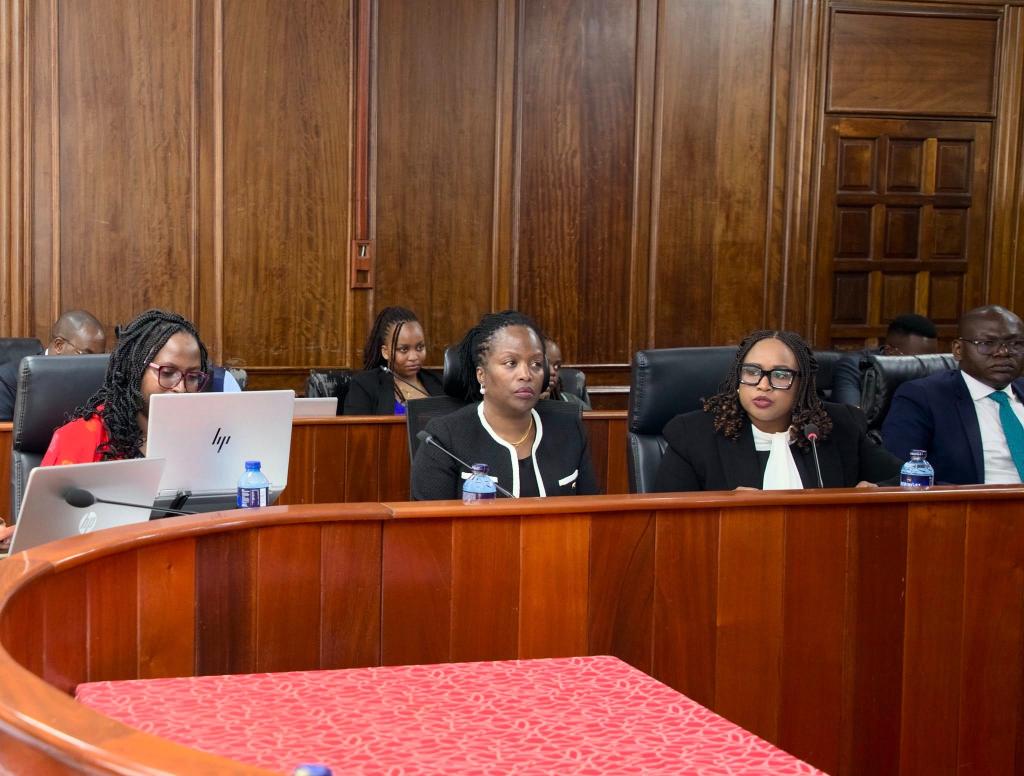Judiciary demands 3.5% budget share to address case backlog, operational gaps

At the same time, the Judiciary revealed it is struggling with a backlog of 257,000 pending cases, a situation made worse by budget constraints that have limited recruitment and technological expansion.
The Judiciary has asked Parliament to amend the Constitution to guarantee it a minimum of 3.5 per cent of the national budget—approximately Sh56 billion, citing persistent financial shortages that have severely affected its ability to carry out its mandate.
Appearing before the National Assembly Constitutional Oversight Implementation Committee, the Judicial Service Commission (JSC) urged lawmakers to ensure direct transfers of its full allocation from the Consolidated Fund, as required under Article 173.
The commission also wants to be included as a direct beneficiary of the Judiciary Fund.
Commission Vice-Chairperson Isaac Ruto and Commissioner Fatuma Sichale said the proposed changes would not only secure adequate funding but also uphold the independence of the Judiciary.
“The JSC is chronically underfunded, limiting its ability to discharge constitutional mandates,” said Winfridah Mokaya, Secretary to the JSC and Chief Registrar of the Judiciary. “The allocation of the Judiciary is less than one per cent of the national budget, which is not sufficient for infrastructure development in more than 140 court stations, recruitment of judges and support staff, and technology adoption for e-justice.”
Mokaya told the committee, chaired by Tiaty MP William Kamket, that the Judiciary needs a budget of Sh45 billion annually to operate effectively. However, for the past three years, the National Treasury has consistently allocated only Sh22.7 billion.
“We appeal to this House to peg the Judiciary and JSC budget to at least 3.5 per cent of the national budget through a constitutional or statutory amendment,” she added.
Mokaya also expressed concern over delays by the Executive in appointing judges recommended by the commission.
She warned that attacks on judicial decisions, especially by members of the Executive, weaken public trust and undermine constitutional order.
“The impact of the tensions affects public perception of the bench,” Mokaya said. “There is need for respect by every arm of its mandate and powers and constant engagement to reduce tensions.”
She also urged MPs to address duplication in the structures handling the Judiciary Fund, particularly the role of the Controller of Budget, which she said threatens the independence of the institution.
At the same time, the Judiciary revealed it is struggling with a backlog of 257,000 pending cases, a situation made worse by budget constraints that have limited recruitment and technological expansion.
Separately, Mokaya appeared before the Senate Standing Committee on Justice, Legal Affairs and Human Rights to present the State of the Judiciary and Administration of Justice Report for the 2023/2024 financial year.
Despite financial challenges, she reported major achievements, including a 99 per cent case clearance rate, with 509,664 cases resolved and High Court presence expanded to 46 out of 47 counties.
“The Judiciary received only Ksh 22.42 billion against our required Ksh 43.17 billion, resulting in a devastating 48% deficit,” she told the committee chaired by Bomet Senator Wakili Hilary Sigei, and called for the Judiciary’s allocation to be set at 3 per cent of the national budget.
But the request was met with criticism from some senators.
Senator Okiya Omtatah said, “The Chief Registrar must show financial prudence on what has already been disbursed, seal all avenues of wastage, and stop corruption within the Judiciary before asking for more money. Kenyan taxpayers deserve accountability.”
Senator Veronica Maina praised the Judiciary for achieving gender balance in its workforce, describing it as a step forward for inclusivity in the justice sector.
Meanwhile, Senator Sigei raised concerns about how the Judiciary was addressing cases involving children in Homabay, Bomet and Narok counties, particularly defilement, early pregnancy, child marriage, gender-based violence and female genital mutilation.
“The Kenya National Bureau of Statistics paints a very bad picture of the situation in these counties. What is the Judiciary doing to protect our children and women?” he asked.
The sessions in both Houses of Parliament highlighted the Judiciary’s growing frustration over resource limitations, as well as the broader push for structural and legal reforms to support an independent, accessible, and efficient justice system.
